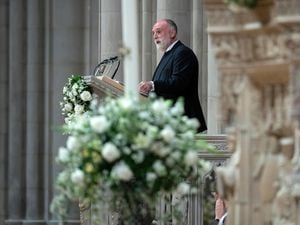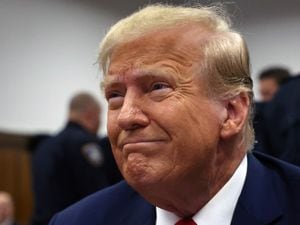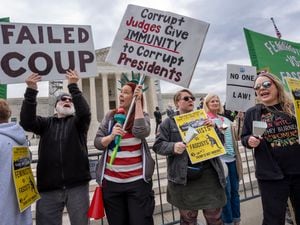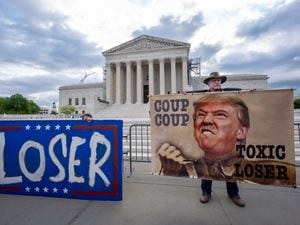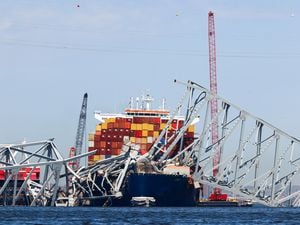Protesters call for Slovakian leader to quit after ‘mafia-linked’ deaths
Journalist Jan Kuciak and his fiancee Martina Kusnirova died while Mr Kuciak was working on a story about corruption.
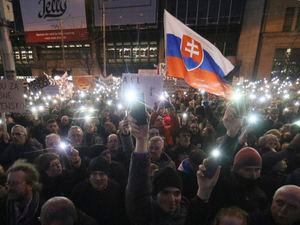
Tens of thousands of Slovaks rallied in massive anti-government protests across the country to demand a thorough investigation of the killings of an investigative reporter and his fiancee, and changes in government.
The protesters packed a central square in Bratislava and other rallies were taking place in dozens of other places in Slovakia as well as abroad, the biggest since the 1989 Velvet Revolution.
The organisers want foreign experts to join the team investigating the killings and the creation of “a new trustworthy government with no people who are suspected of corruption” or ties to organised crime.
Jan Kuciak’s last, unfinished story was about the activities of Italian mafia in Slovakia and their ties to people close to prime minister Robert Fico, whose government is allegedly also linked to other corruption scandals.
“Slovakia is shaken as it has not been for a long time,” organiser Karolina Farska said.

In the wake of the unprecedented slayings of Mr Kuciak and Martina Kusnirova, Slovakia quickly turned from what seemed to be a stable European Union country into chaos.
In a speech last month, President Andrej Kiska talked about his country as “successful, proud and self-confident”.
On March 4, however, he said Slovakia faces a “serious political crisis” triggered by the shooting deaths.
Police said Mr Kuciak’s killing was likely linked to his work.
The political storm has been intensifying daily since the bodies were found February 25.
Amid heated exchanges between the ruling coalition and the opposition, claims byMr Fico of conspiracies against him, and his repeated verbal attacks on Mr Kiska, a growing number of people have started to turn against the Fico government, threatening its very existence.
“A fight started to prevent Slovakia from becoming another Hungary, an autocracy controlled by a small group of oligarchs.”
Reflecting the popular mood and growing protests, Mr Kiska has called for substantial changes in the government or for an early election to resolve the crisis.
“There’s a huge public distrust of the state,” Mr Kiska said.
“And many don’t trust law enforcement authorities … This distrust is justified.
“We crossed the line, things went too far and there’s no way back.”
Mr Fico fired back, accusing the president of destabilising the country with help from Hungarian-American billionaire George Soros, whom Mr Kiska met with privately in New York in September.

Mr Vasecka, the analyst, said Mr Fico’s conspiracy claims likely anger some people and contribute to their decision to join the protests because they hark back to the 1990s and the rule of authoritative prime minister Vladimir Meciar who led the country into international isolation.
Mr Meciar also targeted Mr Soros.
“It reminds people of Meciar and also of communist rule. And a large part of society is very sensitive about it,” Mr Vasecka said.
A junior party in the ruling coalition is demanding the resignation of Interior Minister Robert Kalinak. Thousands already demanded Mr Kalinak’s resignation last year after he was linked to earlier corruption scandals.
Meanwhile, the opposition has requested a parliamentary no-confidence vote on the government, but a date has yet to be set.
Mr Fico called the opposition request an “attempted coup”.

